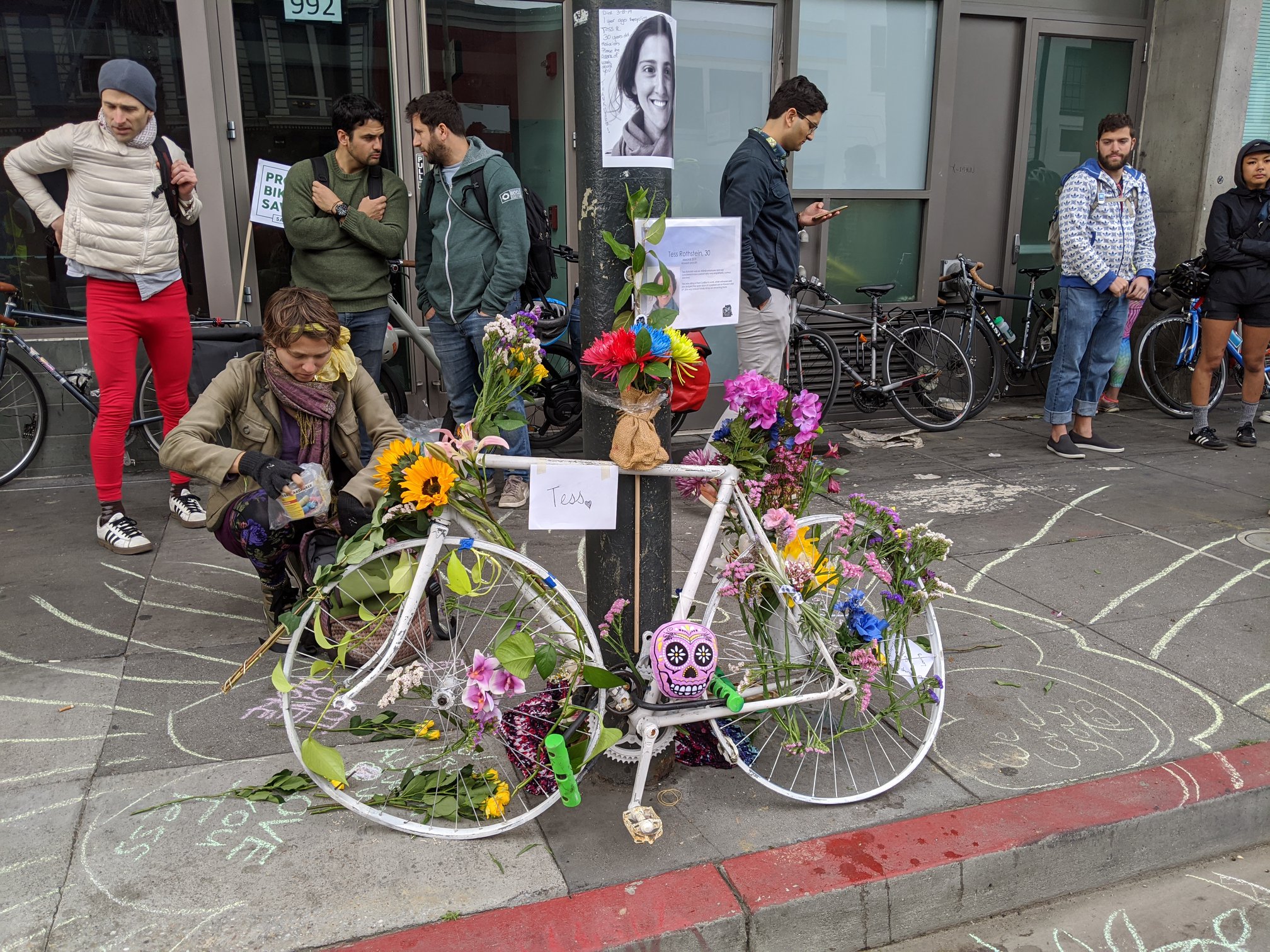Note: GJEL Accident Attorneys regularly sponsors coverage on Streetsblog San Francisco and Streetsblog California. Unless noted in the story, GJEL Accident Attorneys is not consulted for the content or editorial direction of the sponsored content.
One year ago, Tess Rothstein was cycling to work on Howard Street, riding in a conventional striped bike lane alongside a row of parked cars. Just before the intersection with 6th, a parked motorist threw open her door without looking, forcing Rothstein into traffic and under the wheels of a passing truck.
The death of another young cyclist sparked outrage and grief among her friends, family, and the thousands of people who share the risk of her fate every time they get on a bike.

A mix of some 40 friends of Rothstein joined safety advocates at a memorial ride on Sunday to remember her and that horrible day, as well as note some of the progress made in making streets safer. Norna Ross, an organizer of the event, was one of the first to show up at Embarcadero Plaza where the ride began. She recalled the last time she had dinner with Rothstein. "You always figure there will be a next time. And then she's lost in the blink of an eye," she told Streetsblog. "If only we'd hung out a little bit more."
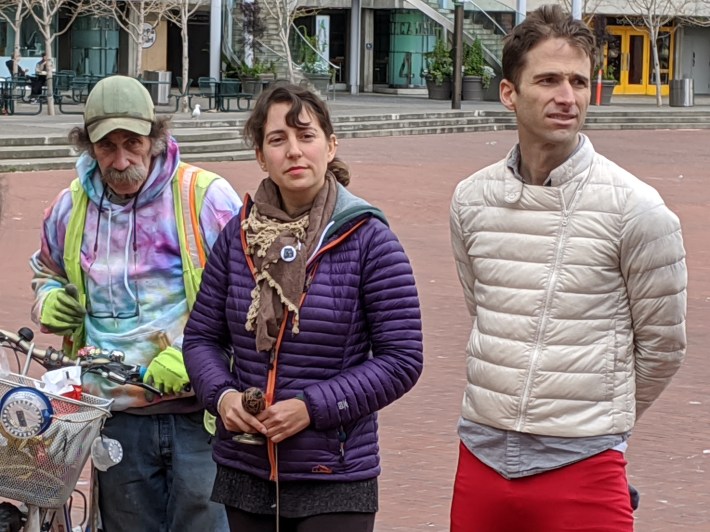
The mourners stood in a circle around an incense pot and flowers. Eva Orbuch, who also helped organize the memorial, said they had gathered for friends to remember Rothstein and for people to think about the "lack of regard for the lives of bikers." She turned to the many advocates who had joined the group, including Claire Amable of the San Francisco Bicycle Coalition, and said she was "deeply grateful to the people who work every day on safety. We want to honor their work." Orbuch gave all the mourners a chance to speak and reflect.
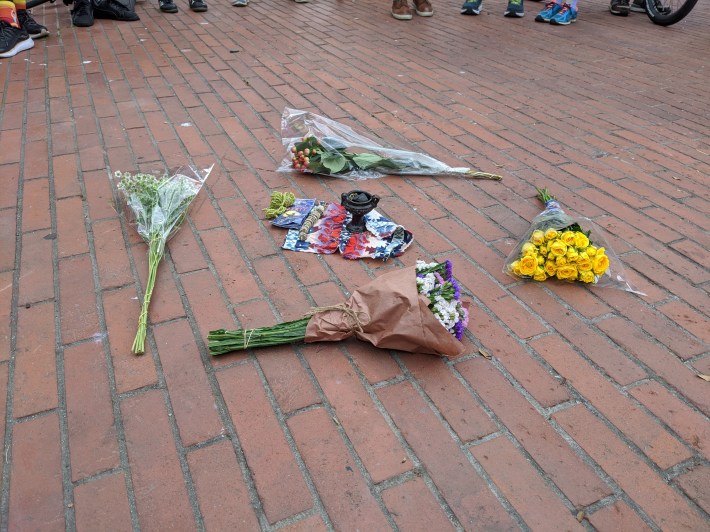
Amable said that what happened to Rothstein was the predictable result of unsafe infrastructure. "It was not a freak 'accident.'" Anthony Ryan recalled his own crash in Ingleside and the injuries he suffered, noting that the roulette spin of traffic violence gave him a second chance. "I was hit. I lived." Others talked about the comity they feel with other cyclists and advocates. "I'm always grateful for a chance to be with this community," said Adam Long, another of the participants and long-time advocates.

Orbuch added that she valued the ritual of coming together, especially in a time of fear of the COVID-19 epidemic. "The world wants us to stay in our homes and be isolated," she said, adding that riding a bike is also a source of fear. "I don't feel safe."
But even those unaccustomed to biking in San Francisco felt significantly safer riding as a group, they said. The group headed off together, briefly riding down a newly 'car-free' and calmer Market Street, and then turning left and heading to Howard for the ride to the site of Rothstein's ghost bike. Along the way, they navigated down Howard towards 3rd Street on a section that, a year after Rothstein's death, still lacks a protected bike lane.
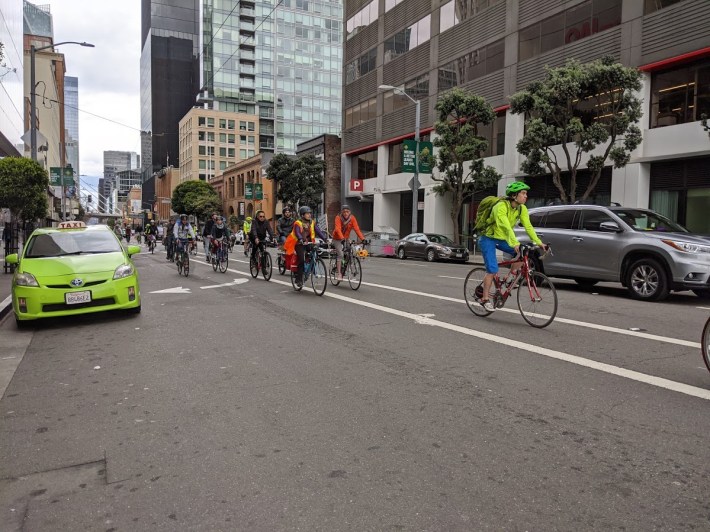
The group then continued west past 3rd, where a three-block section of protected bike lane was added last year in reaction to Rothstein's death.

The group arrived a few minutes later at the intersection of 6th and Howard and stopped at Rothstein's ghost bike. They parked their bikes and stood in silence, jotting down thoughts and feelings in chalk on the sidewalk around the spot, and leaving flowers.

It's important to reiterate that Rothstein died within sight of a protected bike lane, a street configuration that makes the kind of crash that took her life impossible, just on the other side of 6th Street.
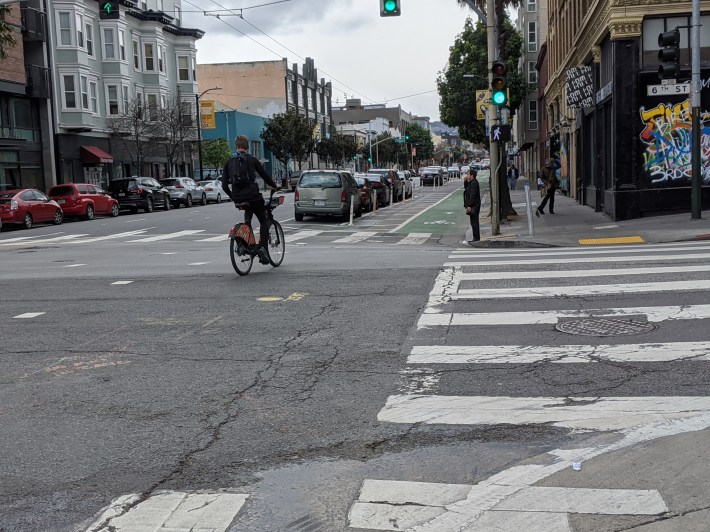
A protected bike lane to the west of 6th was installed in 2018, after the death of Kate Slattery, another young cyclist, at Howard and 7th. At the time, advocates were frustrated and concerned that the city's reactionary response of building a small segment of protected bike lane, instead of continuing all the way to the Embarcadero, would lead to another serious or fatal crash.
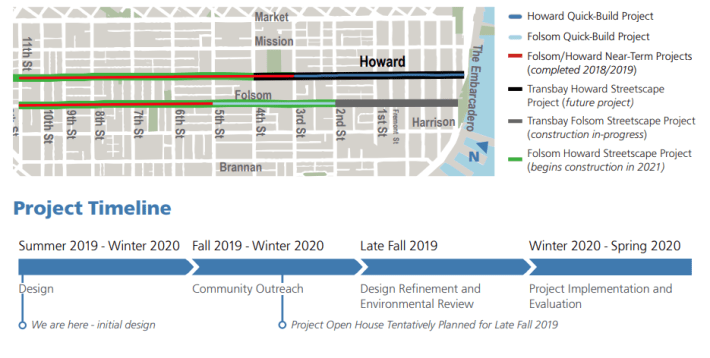
Sadly, that's what happened. And the city quickly added another block of protected bike lane after Rothstein's death. But as of today, the stretch from 3rd to the Embarcadero is still without protection, although that should, finally, be remedied this spring. Folsom, along with many other streets in SoMa, is also not protected along its entire length.
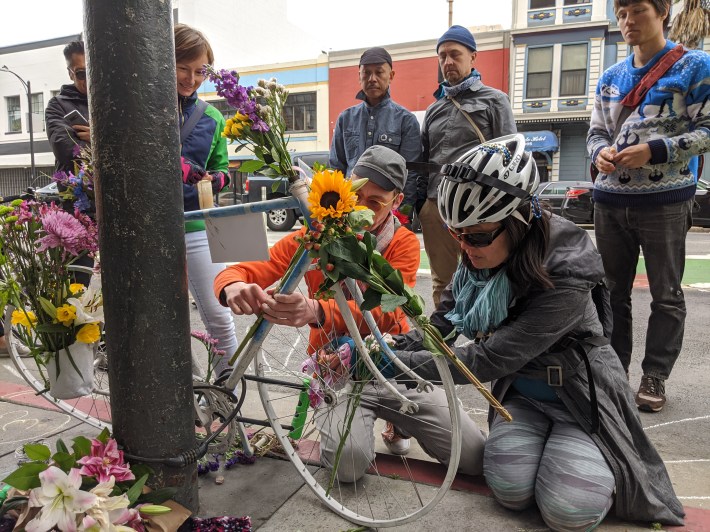
Ross said she is frustrated that the city is unable to move quickly enough to bring down traffic fatalities, as evidenced by the spate of recent pedestrian deaths in the Tenderloin and elsewhere. She's upset that little to nothing tends to happen unless advocates demand it.
"Within the week that she died, the city stepped up," said Ross. "I'm happy things are better now, but there are still so many key spots that are not protected."
